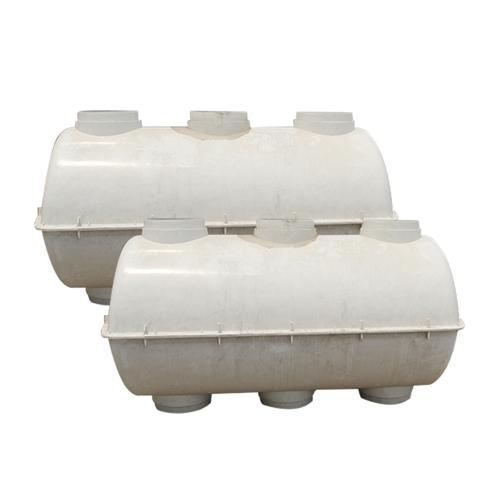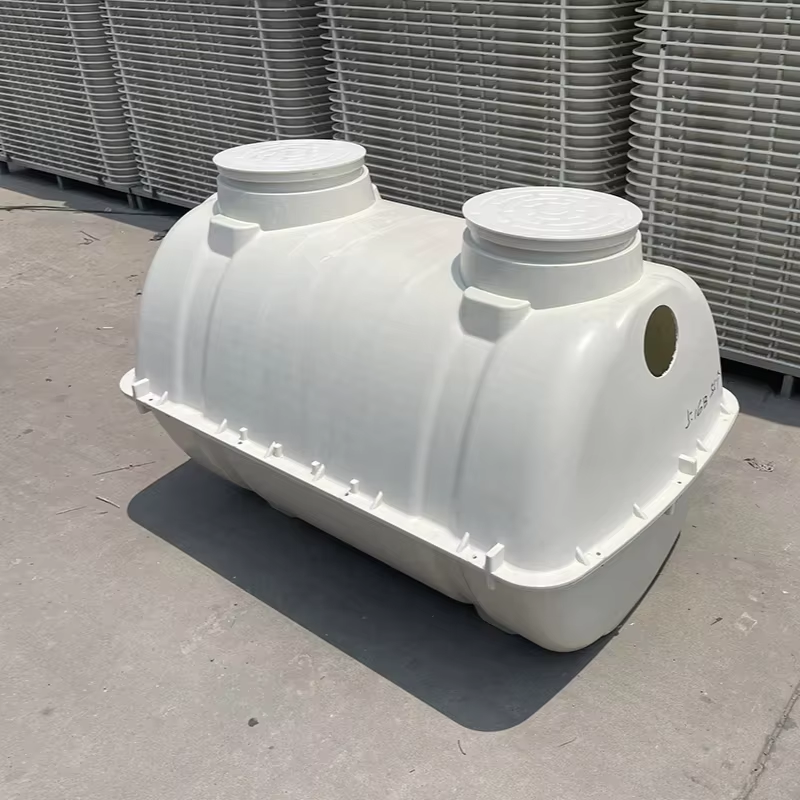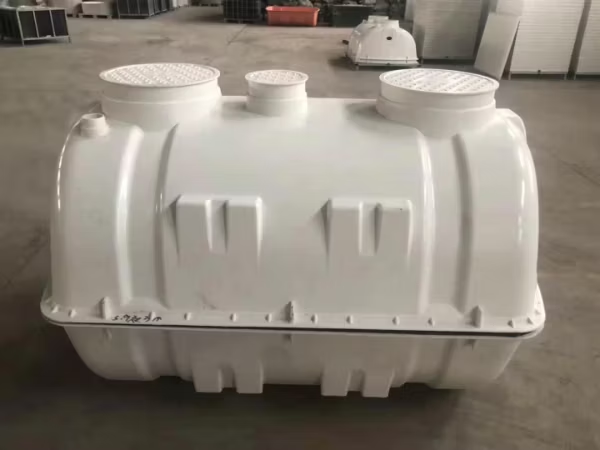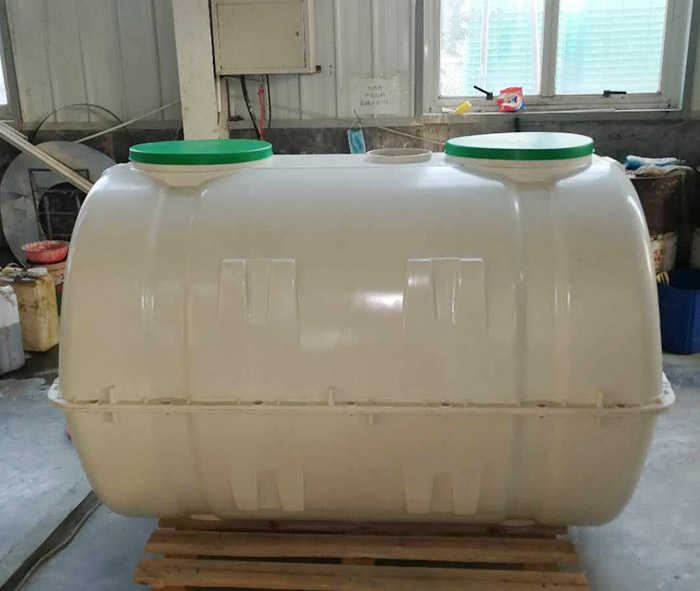Fiberglass Septic Tanks
Fiberglass septic tank is strong, lightweight, and highly durable wastewater management solutions designed for long-term performance in residential, commercial, and rural settings. Constructed from reinforced fiberglass materials, they are completely resistant to rust, corrosion, and chemical damage, ensuring decades of reliable service. Their watertight, non-porous design prevents leakage and groundwater contamination, promoting environmental safety. Easy to transport and install, these tanks are especially suitable for remote or hard-to-access locations. With minimal maintenance requirements, exceptional structural strength, and resistance to soil and weather conditions, fiberglass septic tank provide a dependable, eco-friendly, and cost-effective option for modern wastewater treatment systems.
Description
Fiberglass septic tanks are one of the most reliable and durable wastewater management solutions for residential, commercial, and industrial properties. Designed with high-strength fiberglass-reinforced plastic (FRP), these tanks provide a lightweight yet robust alternative to traditional concrete and steel tanks. Their resistance to corrosion, rust, and chemical reactions makes them an ideal choice for areas with challenging soil conditions and fluctuating water tables.
Why Choose Fiberglass Septic Tanks?
One of the standout advantages of fiberglass septic tanks is their lightweight construction. Unlike heavy concrete tanks that require specialized equipment for transportation and installation, fiberglass tanks can be installed quickly and with less labor. This significantly reduces installation costs and project timelines, making them an efficient choice for homeowners, contractors, and property developers.
Fiberglass septic tanks are also impermeable to water infiltration and root intrusion. This feature ensures long-term efficiency and prevents groundwater contamination, a concern often faced with older or poorly sealed septic systems. Because of their smooth inner walls, these tanks also reduce sludge buildup, making maintenance easier and extending the lifespan of the tank.
Performance and Durability
Engineered to withstand environmental pressure, fiberglass septic tanks maintain their structural integrity even in areas prone to soil shifting or high groundwater pressure. Their non-corrosive properties allow them to last for decades without deteriorating. This durability translates into long-term cost savings, as fewer repairs or replacements are needed compared to other septic tank materials.
Fiberglass septic tanks are available in multiple sizes and capacities, ranging from small residential units to large-scale systems for commercial use. Whether you need a 1,000-gallon tank for a single-family home or a multi-thousand-gallon tank for a business facility, fiberglass options provide flexibility and reliability.
Environmental Benefits
With increasing emphasis on sustainability, fiberglass septic tanks stand out as an eco-friendly solution. Their watertight design minimizes the risk of leaks and groundwater contamination, while their long service life reduces the environmental impact associated with frequent replacements. Many fiberglass tanks are also compatible with advanced wastewater treatment systems, allowing properties to meet stricter environmental regulations.
Applications
-
Residential properties: Homes, cabins, cottages, and rural estates
-
Commercial buildings: Offices, schools, hotels, and small businesses
-
Industrial facilities: Manufacturing plants, workshops, and agricultural sites
-
Remote locations: Camps, parks, and off-grid communities
By choosing fiberglass septic tanks, property owners can ensure a cost-effective, low-maintenance, and future-proof wastewater solution.
FAQs
1. How long do fiberglass septic tanks last?
With proper installation and maintenance, fiberglass septic tanks can last 30–50 years or more due to their corrosion-resistant properties.
2. Are fiberglass septic tanks better than concrete tanks?
Yes. They are lighter, easier to install, and more resistant to cracking, root intrusion, and chemical damage compared to concrete.
3. Can fiberglass septic tanks handle high groundwater levels?
Absolutely. Their watertight and pressure-resistant design makes them suitable for areas with high water tables.
4. What sizes are available for fiberglass septic tanks?
They come in a wide range of capacities, from 500 gallons for small households to over 10,000 gallons for commercial and industrial use.
5. How do I maintain a fiberglass septic tank?
Regular pumping, avoiding non-biodegradable waste, and routine inspections will keep your tank functioning efficiently for decades.




Reviews
There are no reviews yet.